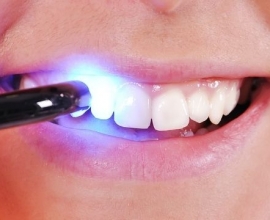
Why Saliva Is So Important
If your mouth feels dry, you probably realize you need to drink more water. Many find it challenging to drink the 9 cups for women and 13 for men each day recommended by the Institute of Medicine. Symptoms of serious dehydration may include dark yellow urine, very dry skin, dizziness, and rapid heartbeat or breathing.
What doesn’t get enough attention is that dry mouth means you don’t have adequate saliva and this impacts your oral and overall health. This can result due to diabetes and Parkinson’s disease, smoking, chemotherapy and radiation, and as a side-effect of many antihistimines, anti-anxiety medications, appetite suppressants, diuretics, antidepressants, pain medications, and drugs for high blood pressure.
Humble saliva is actually a very complicated liquid that is mostly made up of water, but includes electrolytes, white blood cells, enzymes, mucus, epithelial cells and other substances. It is secreted by hundreds of glands producing 2-4 pints a day, especially when you chew, cutting up food and helping you taste it. But it’s importance is much more than that, as WebMD explains https://www.webmd.com/oral-health/what-is-saliva:
- Saliva prepares food for digestion: It moisturizes food, making each morsel easier to swallow, and mixes in the enzymes that start the digestive process in the mouth. Without adequate saliva your will not absorb nutrients as well.
- Saliva cleanses teeth and gums: Eating leaves bits of food on the teeth and gums. Saliva rinses some of this away, especially sugar, which is the perfect breeding ground for bacteria that harm oral health.
- Saliva protects against acid: Microorganisms that flourish on food particles emit an acid that erodes enamel, the hard surface of the tooth, leading to cavities. Saliva has the antibody Immunoglobulin A (IgA) that combats these bacteria and the protein lactoferrin, which interferes with their growth.
- Saliva adds back minerals: Acids quickly remove minerals from teeth. Saliva keeps calcium and phosphates flowing around teeth to remineralize them and strengthen the crystalline bonds.
- Saliva reduces the risk for overall health: Without saliva and proper brushing and flossing, periodontal infection can lead to loss of teeth. The bad oral bacteria spread throughout the body, raising the risk for cancer, diabetes, and cardiovascular disease.
How to boost saliva?
- Chew sugar-free gum (often sweetened with xylitol, which is beneficial for oral health) for 20 minutes, which increases saliva flow.
- Suck on sugarless hard candy.
- Drink plenty of water, even when it isn’t hot and you don’t feel especially thirsty (you can’t trust your body to clearly indicate when you need more, as urine will show).
- Read the side-effects of any medication and consult with your doctor on alternatives to those that might be causing dry mouth.
- Reduce or eliminate smoking.
- Ask your dentist for a prescription for artificial saliva, which can make your mouth moist, though it doesn’t have the proteins, enzymes, remineralizing actions, and other benefits of your own saliva.
- Above all, brush for two minutes after breakfast and dinner and floss thoroughly before bedtime. A healthy mouth will produce all the saliva you need.
Serving patients in the Brookline area, our team of dentists can help you with any other need or question in regards to great dental care. To schedule an appointment, contact our team today.








